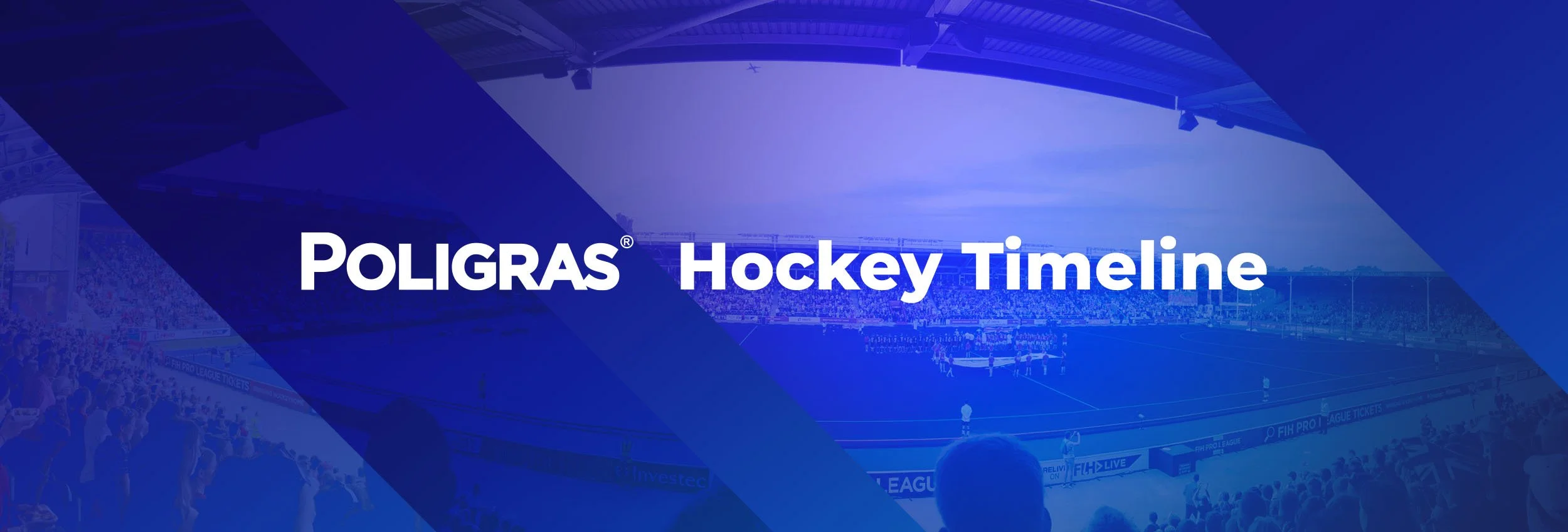“Montreal 1976
The first Olympic synthetic turf, made by AstroTurf is born.”
“Moscow 1980
Following AstroTurf in 1976, this was the first Olympic Games on Poligras. And the first Women’s field hockey competition at the Olympics (won by Zimbabwe).”
“Seoul 1988, Barcelona 1992, Atlanta 1996
AstroTurf and Poligras turfs kept raising the standard and momentum was growing for the explosion of innovation in the 2000s. The 1996 Games were a transition point – featuring legendary corner strikers Bovelander (NL) and Fischer (GR), and a new breed of specialist drag flickers Lomans (NL) and Giles (GB). The mid-late 90s saw amazing innovations as the game sped up to match the potential of turf: off-side removed, tomahawks, shave tackles and composite sticks.”
“Sydney 2000, Beijing 2008 and the skills explosion
New polyethylene turf technology brought a revolution in playability, allowing for faster, more precise and more dynamic play on the first coloured turfs. The 2000s are the decade of the turf-natives, a new breed of game-changing player who dominate and reinvent the game with new skills, new equipment on better and better turfs:
- Teun de Nooijer (94-2012)
- Luciana Aymar (98-2014)
- Sohail Abbas (98-2012)
- Jamie Dwyer (2001-16)”
“London 2012 and the birth of blue turf
As the sport’s first ‘turf-natives’ took centre stage, the iconic blue surface improved visibility and playability.”
“Rio 2016 heralds texturized turf technology
Fibre shape innovation improved ball roll and reduced water evaporation resulting in a more fluid game that required up to 50% less water than previous Olympics.”
“Tokyo 2020 goes greener
The world’s first climate-positive hockey turf, made from 60% sugarcane and green energy delivered a significant reduction in CO₂ emissions.”
“Paris 2024 - a watershed moment
Made from 80% sugarcane, the Paris turf became the world’s first carbon zero turf and its Turf Glide technology meant it required 63% less water than London 2012.”
“Los Angeles 2028
The future of turf is coming…”

